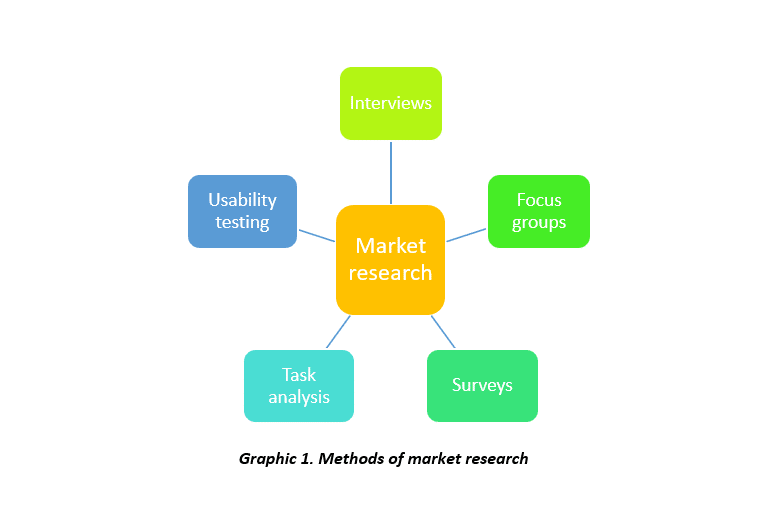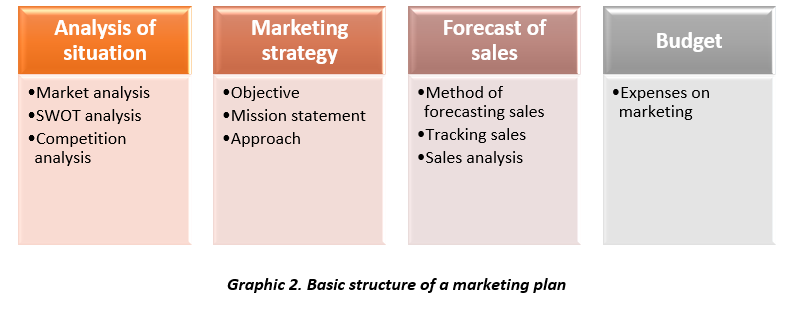On-line training for women e-entrepreneurs
-
Module 1 What is entrepreneurship8 Topics|1 Quiz
-
1.1. Introduction to entrepreneurship
-
1.2. Basic principles of entrepreneurship
-
1.3. Types of entrepreneurship
-
1.4. Differences between entrepreneurship and e-entrepreneurship
-
1.5. Entrepreneurial thinking
-
1.6. Entrepreneurial skills
-
1.7. Challenges and opportunities women face in entrepreneurship
-
1.8. Ethical aspects in entrepreneurship
-
1.1. Introduction to entrepreneurship
-
Module 2 From idea to business7 Topics|1 Quiz
-
Module 3 Digital Marketing10 Topics|1 Quiz
-
3.1 Marketing research and marketing plan
-
3.2 Digital Marketing
-
3.3 S.E.O. (Search Engine Optimization)
-
3.4 Social media marketing
-
3.5 PPC – Google AdWords
-
3.6 Web Analytics
-
3.7 Mail Marketing
-
3.8 Internet of Everything
-
3.9 How to build your website
-
3.10 Effectiveness of a digital marketing strategy
-
3.1 Marketing research and marketing plan
-
Module 4 Business Networking6 Topics|1 Quiz
-
Module 5 Fund-raising & financing6 Topics
-
Module 6 Presentation of an e-entrepreneurial project (pitch)3 Topics|1 Quiz
-
Annex
3.1 Marketing research and marketing plan
1.1. Definition of Marketing Research and Marketing Plan
To launch a successful enterprise, you will need to advertise your services or products to the right group of people with the right message. The market is composed of current or potential customers and competitors. For that reason, you have to do research constantly. The more you know about your customers, the easier it is to meet their needs and to target them with the appropriate messaging. With economy being so competitive with each passing day, if you are thinking of starting an enterprise, the first thing you have to do is to conduct thorough and extensive market research.

Regardless of size, industry, or type of business, market research is an important tool for companies because it helps them understand what consumers want, develop products that their consumers will use, and maintain a competitive advantage over other companies in their industry. The aim of conducting market research is to equip your enterprise with the information you need to make informed decisions.
Basic questions you need to answer:
- Who are the target customers of your enterprise?
- What do target customers want?
- How often will those customers purchase specific products or services?
- What is the price of the specific product or services that your competitors offer on the market?
- How much are they willing to pay for those products and services to you?
- What is my advantage against the competition?
Marketing plan is a report which regards the marketing strategy of your enterprise. A marketing plan contains one or more marketing strategies. It is a report for introducing and delivering your services or products to your target audience. It includes all the necessary actions you have to implement, in order to achieve the expected targets. It requires research, time and efforts but is very useful for your enterprise if you want to succeed.
A marketing plan usually includes an overview of your company’s marketing goals, a description of your company’s marketing position, a timetable with all the activities which have to be implemented, Key Performance Indicators you will use to track your strategy’s effectiveness and a description of your target audience and their needs.
The aim of the marketing plan is to record the strategies you are going to use, in order to have an effective campaign. It will contain all the necessary information about your marketing strategy and you will be able to measure its success easily and see what works and what does not.
An effective marketing plan helps an entrepreneur to define the marketing objectives and marketing efforts of his/her business in an upcoming period. Market research is necessary to develop an effective marketing plan.

1.2. Marketing Research: types, methods, steps, benefits
Market research is not an activity to be conducted only when you first start up a business. It is an ongoing cycle, or at least it should be, if you are really going to benefit from it. Market research is beneficial at any stage of a business but is critical for new start-ups. New businesses need to demonstrate that there is a potential market for their product or service before starting up. It is important when small enterprises are trying to determine whether a new business idea is viable, looking to move into a new market, or are launching a new product or service. Firstly, a market research allows you to learn more about the competitor’s behavior, strengths and weaknesses. However, you can learn more not only for the competitors, but also for the customers. A market research identifies customer’s buying habits, how much they are willing to spend and why they may prefer competitor’s products or services. Learning about your customer’s needs, which may change over time, you may find new needs that are not being met, which can create new opportunities for your enterprise and at the same time will prevent threats that will come from the market.
There are lots of different ways you could conduct market research and collect customer data. Of course, you can use more than one research method, to reach better results. Below, you will find some of those methods:

Market research gathers either primary information or secondary information.
Primary research is the data collected directly by the company or a person hired by the company to do the research. The data collected can be qualitative data (non-numerical data) or quantitative data (numerical or statistical data). Two types of information can be gathered from primary market research, exploratory and specific. Exploratory research is open ended and a problem is explored by asking open ended questions in a detailed interview format, usually with a small group of people (6-10 members), known as sample. Specific research often follows exploratory research and is used to dive into issues or opportunities the business has already identified as important. It is more pinpointed and is used to solve the problems that are identified by exploratory research.
Secondary research is all the data that an outside entity has already gathered and are available to draw conclusions, such as government agencies, media, reports and research from other business operating within the same market sector.
Benefits of a market research
A market research helps you to:
- Communicate the right message: Once you have the research results, you can select the most effective way to communicate to your customers and potential customers. You will be able to know what they like to see, hear or do, so you will know how to adapt the message.
- Identify opportunities in the marketplace: Research can make obvious the fact that costumers may not need or want a product or a service. So, you are able to change what you are going to offer to your target market before your competitors. Research can also reveal new areas or upcoming trends that have not yet been noticed. If you have not done the research, is possible to miss out the opportunity and another enterprise take the advantage of it.
- Minimise risks: Risks are always involved when you start a business. Any business aims to reduce their risks where possible. A research provides you the information required, in order to decide to do something or not, according to your market’s needs at the moment. Having that information, you can make effective and efficient use of your resources, in order to gain more customers.
- Improve sales and maximise profits: Market research helps you estimate the acceptance and the sales of a new product or a service. This allows you to plan the most effective marketing, spent to achieve maximum profits. Constantly improving the product or the service you provide is essential if you want to grow your enterprise.
- Uncover potential problems: A research helps you to get consumer’s reactions to a new product or service while it is still being developed. This will enlighten you to do any further development, in order to cover your market’s needs.
- Plan ahead: A research and the information about your target market and their behaviour allows you to develop a comprehensive marketing plan. A marketing plan describes your overall objectives and the way that you are going to get there. Businesses can align their efforts and reach them quicker and more efficiently, by having a marketing plan.
- Measure brand reputation: Market research allows you to know about your brand reputation. You will be able to know what your customers think about your brand which allows you to rebrand if needed. You will also know how you measure up against your competitors and then you can move accordingly. Especially start-ups have to dedicate time to build up a great reputation. The image that they build determines which customers may be interested.
- Establish trends: The research has to be an ongoing activity. If you do it periodically, you will have a lot of information to analyse your target market and establish trends.
- Establish your market positioning: Information from market research helps you monitor your progress. If you know your position in the market, you can make decisions and act.
- Make well-informed decisions: Enterprises can make better decisions, if they know about their market and their competition. Without a market research, a business risks making the wrong decision. A research appears the options that a business has, exposes the risks and offers a higher performance and profitability.

Steps for a market research:
- Definition of the problem
The first step for the conduction of an effective market research is to define the problem. Every company has to find out the problem for which the research is to be conducted. Having a well-defined problem, will be very helpful for you and the researchers. The questions should be directed to solve the specific problem and they have to be very clear to the respondents.
- Research plan
The development of the research plan involves collect information relevant to the objective. Firstly, the data sources could be either the primary source or the secondary source. You should decide the research approach that you will follow, as for the primary research are several available methods. Once the research approach is decided, you need a representative sample. It is very important that the people who represent characteristics that matter to the researchers and that they need to investigate, are in the chosen sample. A larger sample is more likely to be representative. In order to avoid inaccuracy in your surveys, you should have representative and balanced samples. The final step is to decide how to contact the respondents.
- Data collection
After the research, you should have to collect the data. If you collect data in a correct way, you will avoid possible problems (people that did not answer a research or answer it incompletely) that may cause errors in the research.
- Data analysis
The analysis of the results is the most important step, in order to make the appropriate decisions. Data analysis will be captured in a report, which should also be written clearly so that effective decisions can be made on that basis. The analysis of the results offers a wider meaning to the obtained data.
- Research Report
The research report will help you understand where you need to focus. The best way to make a good report, is not to follow the order of the questions, but to start with the essential questions and continue with the details.
- Ready for decisions
You now have all the necessary and valuable information about the needs and the intentions of the target market. So, you are ready to make decisions and act.
1.3. How to develop a Marketing Plan
A marketing plan is one of the most important business tools for any company. The marketing plan is the blueprint of how the marketing strategy is going to be implemented. Marketing strategy contains information about how the business is positioned, which is the target audience, which is its route to the market, which is its core mission, vision and values and how that is illustrated in the marketing messaging. The marketing plan ensures that the right activity is taking place, at the right time, to the right audience through the right channels.

Every business, no matter how big or small is, needs a marketing plan. There are business leaders who do not devote time and resources for a marketing plan. However, great leaders take the time to regularly develop marketing strategies and plan to build a business with a purpose. Successful enterprises have extensive knowledge about their customers and their competitors. A business cannot sustain without reaching out to people to promote its products or services. A marketing plan is essential, if you want people to take notice of your business and products or services that you offer.
Nowadays, businesses have to face the competition. There are many other businesses offering the same things that you are. Customers have so many options to choose from that it is becoming all the more difficult to win their loyalty.
But why is a marketing plan so important for your enterprise?
A marketing plan:
- Provides focus
- Enables you to plan and manage resources effectively
- Provides transparency
- Ensures consistency
- Provides clarity
- Allows your enterprise to be proactive and aligned with your vision & goals
- Makes it easy to evaluate new opportunities
- Means that your goals are measurable
- Helps in avoiding future uncertainties
- Helps in control
- Can minimize the risk of failure
- Helps you create a reputation for your business
- Helps you set and meet deadlines
A basic structure of a good marketing plan includes the following:

How to develop a marketing plan in 8 steps?
- Carry out a market research
Your marketing plan should include information about the target market, your potential customers and their needs. So, before you develop a marketing plan, you have to carry out a market research.
- Define your target audience
Your target audience is the potential customers that you want to provide your services or sell your products. It is necessary your products and services meet the needs of the customers that you are targeting, in order not to waste your resources to people who are not interested about them.
- Carry out a SWOT analysis
SWOT analysis is necessary for your marketing plan. Before you start any campaign, you need to know the strengths, the weaknesses, the opportunities and the threats, know how they could affect your strategy, how to avoid them and how your enterprise can improve.
- Learn about your competitors
It is crucial to know as much as you can about your competitors. Who are they and why do the customers prefer them? You can identify both opportunities and threats for your business.
- Determine your goals
An important step is to define your goals and objectives. Your goals have to be realistic and specific.
- Set your marketing strategies
Since you define your target audience and your goals, you have to choose the appropriate strategy that you are going to use, in order to succeed.
- Set the budget
You have to define the budget that you are willing to spend for your marketing campaign. You have to think what the most effective options are, in order not to waste your money.
- Do not forget to update the marketing plan
Remember that you have to keep updated your marketing plan in order to reach your goals. It is possible to face difficulties during your campaign, so you have to update and make the appropriate changes to the marketing plan.



